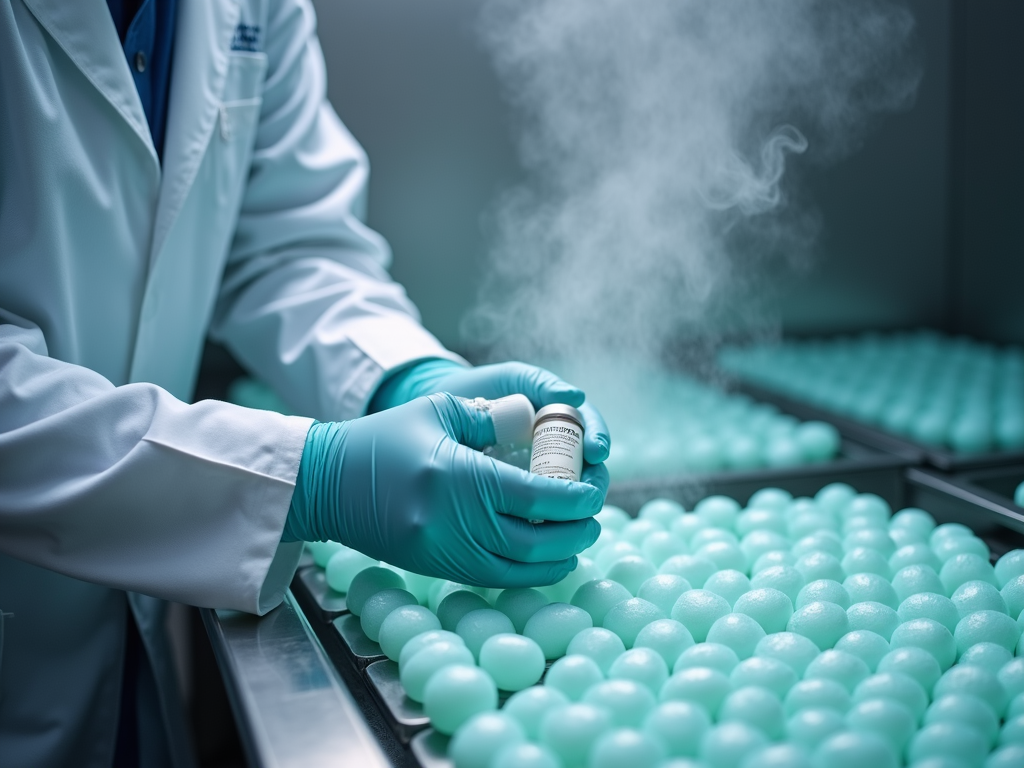The Importance of Fertility Preservation
March 9, 2025, 8:28 a.m.
Overview
Fertility preservation gives people the power to protect their future ability to have kids. It’s a game-changer for those facing medical treatments or wanting to delay starting a family. This article dives into why it matters, the options available, and what’s new in fertility preservation research.

Why Fertility Preservation Matters
The importance of fertility preservation can’t be overstated. It’s about keeping your options open. Treatments like chemotherapy can harm your ability to have kids, and waiting too long can make it tougher as you age. Preserving fertility means you can still dream of a family later.
For many, having kids is a big part of life. Losing that chance due to illness or time can feel crushing. Fertility preservation steps in as a lifeline, offering hope and control. Plus, it’s changing how we think about family planning in a world where people often wait longer to settle down.

Fertility Preservation for Men
Men have solid options to protect their fertility. Sperm freezing is the go-to method—it’s simple and effective. You provide a sample, it’s tested, and then frozen in liquid nitrogen for years. Later, it can be used for things like IVF.
If producing a sample isn’t possible, there’s testicular sperm extraction (TESE). Doctors take a tiny bit of tissue from the testicles to find and freeze sperm. It’s a bit more involved but works well for some. Either way, freezing multiple samples boosts your chances down the road.
A Personal Take
Picture a guy in his 20s facing cancer. It’s scary enough, but then he hears treatment might leave him infertile. Freezing his sperm before chemo gives him something positive to hold onto—a chance to be a dad someday.

Fertility Preservation for Women
Women can choose between egg freezing and embryo freezing. Egg freezing means taking hormones to grow extra eggs, then retrieving and freezing them. Embryo freezing goes a step further—eggs get fertilized with sperm first. Both can wait years to be used.
Egg freezing is popular because it’s flexible—no partner needed. Embryo freezing might have a slight edge in success, but it’s a bigger commitment. Your doctor can help you pick what fits your life.
A Personal Take
Think of a woman chasing her career in her 30s. She wants kids but not yet. Freezing her eggs lets her focus on work without worrying about time running out. It’s her way of taking charge.

Fertility Preservation for Cancer Patients
Cancer can throw a wrench in your plans, especially with treatments that hurt fertility. Chemotherapy and radiation don’t mess around—they can damage eggs or sperm fast. Fertility preservation offers a way to fight back.
Acting quick is key. Freezing sperm or eggs before treatment starts can save your shot at kids later. Doctors should bring this up early so you’re not left wondering ‘what if’ after recovery.

Fertility Preservation in Family Planning
Not everyone needs it for medical reasons. Some want kids but not right now—maybe they’re traveling, building a career, or just not ready. Fertility preservation lets them wait without losing the chance for a biological family.
A Personal Take
Imagine a couple who love adventure. They want to see the world before kids. Freezing their eggs or sperm means they can hike mountains today and still plan for tomorrow.

Latest Fertility Preservation Research
Fertility preservation research is pushing boundaries. Scientists are testing ovarian tissue freezing—taking a piece of ovary to freeze and later transplant. There’s also in vitro maturation, where immature eggs grow outside the body. These could open doors for more people.
New ideas keep coming. Better freezing methods and higher success rates mean fertility preservation is getting smarter and more accessible every year.

Costs and Coverage
Fertility preservation isn’t cheap, but costs depend on what you choose. Sperm freezing might run $500-$2,000. Egg or embryo freezing? Think $5,000-$15,000 per round, plus meds and storage fees.
Insurance is tricky. If it’s for cancer, some plans help out. For personal choice, you’re usually on your own. Check with your provider to know what you’re facing.
| Method | Cost Range | Storage Fees |
|---|---|---|
| Sperm Freezing | $500-$2,000 | $100-$500/year |
| Egg Freezing | $5,000-$15,000 | $300-$600/year |
| Embryo Freezing | $5,000-$15,000 | $300-$600/year |

Ethical Questions
Fertility preservation brings up big questions. What happens to frozen eggs or sperm if you don’t use them? Some donate them; others let them go. There’s no one-size-fits-all answer.
It’s not a sure thing either. Success isn’t guaranteed, so you need the real scoop before deciding. Plus, some worry about companies pushing it too hard—information has to stay honest.

Summary
The importance of fertility preservation shines through for anyone facing infertility risks or planning ahead. It’s a bridge to hope—whether you’re beating cancer or chasing dreams first. With options for men and women, plus exciting research, it’s a tool to shape your future family.